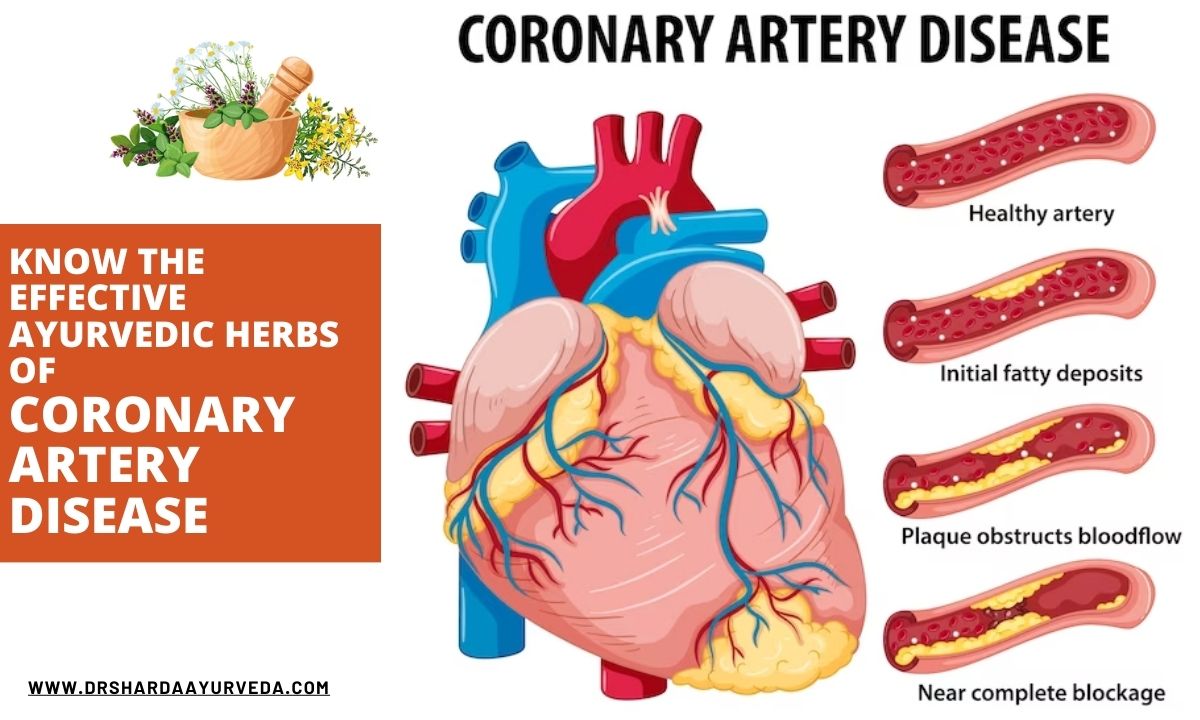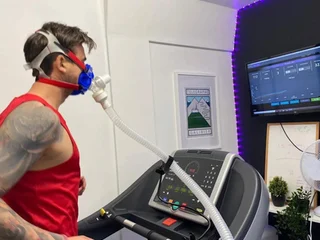Are you currently experiencing a convergence of signs, which include feelings of unease in your chest and difficulty with your respiration process?
If this is the case, there may be numerous reasons for your difficulty, considered one of those Coronary Artery Disease (CAD). This disease is named as “Krimija Hrida Roga” which is defined as the interference supply of oxygen-rich blood through arteries to the heart. This condition can be seen as a result of imbalances inside the energies (Vata, Pitta, and Kapha) within your frame. These imbalances disrupt the smooth operation of your cardiovascular device, resulting in blockages within the coronary arteries and impacting the overall health of your heart.
In the upcoming paragraphs, we will offer all the relevant information to help you apprehend this situation more definitely and in an easier manner. Kindly retain studying until the end to take advantage of valuable insights on the subject, so that you can adopt a safest approach for managing coronary artery disease.
Types of Coronary Artery Disease:
There are three types of coronary heart disease, including:
- Obstructive coronary artery disease
- Nonobstructive coronary artery disease
- Spontaneous coronary artery dissection
Symptoms of Coronary Artery Disease:
Based on both empirical proof and sizable studies, the interpretation of symptoms related to coronary artery disease entails the discernment of imbalances in the doshas, which are important energies in the frame.
- Specifically, when people experience discomfort within the chest, it is indicative of a disturbance in the Pranavaha srotas, the channel chargeable for the harmonious float of strength.
- Similarly, the presence of breathlessness indicates disruptions within the seamless circulation of prana and the existence of pressure power.
- Furthermore, fatigue is frequently associated with a depletion of ojas, the critical strength that nurtures average well-being.
- Lastly, palpitations function as a cautionary signal of an exacerbated vata dosha, which governs the movement and circulation of bodily capabilities.
Early Signs of Heart Blockage:
Studies from ancient times place great emphasis on the need to be tuned in to the subtle indications that our body gives us, such as angina or discomfort, that may manifest while engaging in physical activities. These signs serve as vital clues that can reveal imbalances within the doshas, which in turn have the potential to affect the overall well-being of our cardiovascular system.
Although heart assault symptoms can range from character to character, the most common early signs include:
- Chest pain in the center or left facet of your chest
- Discomfort on your back, neck, or jaw
- Lightheadedness or weak spot
- Pain that radiates through one or each shoulder or hands
- Sensations of squeezing, stress, or fullness on your chest
- Shortness of breath, even without activity
Recognizing and understanding those preliminary warning symptoms holds giant significance, as it allows us to take proactive measures to nip any potential health problems.
Diagnosing Coronary Artery Disease:
Ayurvedic diagnosis involves understanding an individual’s prakriti (constitution) and vikriti (current imbalances). Pulse diagnosis (nadi pariksha) plays a crucial role in helping discern dosha involvement in heart issues. Examining symptoms aids in tailoring holistic treatments.
Additionally, blood tests may be performed to evaluate your well-being and diagnose the problem.
Tests to help diagnose or monitor coronary heart disease include:
- Electrocardiogram (ECG).
- Exercise stress test.
- Echocardiogram.
- Nuclear stress test.
- Heart (cardiac) CT scan.
- Cardiac catheterization and angiogram
The following herbs can be used as treatments for coronary artery disease
- Garlic (Allium sativum): This herbherbs contains several minerals like phosphorus, zinc, potassium, and magnesium. Vitamins C, K, folate, niacin,and thiamine also are found abundantly in garlic.
Benefits:
- Maintaining Heart Health with Ayurvedic Herbs.
- Effective in lowering cholesterol and preventing arterial blockages.
- Rich in antioxidants to combat oxidative stress in the cardiovascular system.
- Arjuna (Terminalia arjuna): Known as the “guardian of the heart” in Ayurveda, arjuna plays a crucial role as consists of the properties such as: inotropic, anti-ischemic, antioxidant, blood pressure lowering, antiplatelet, hypolipidemic, antiatherogenic, and antihypertrophic which prevent the heart.
Benefits:
- Balancing Kapha and Pitta Doshas
- Contributes to overall heart health.
- Strengthens heart muscles and promotes cardiac well-being.
- Recognized for heart-protective properties.
- Garlic (Allium sativum): With its tikta (bitter) and katu (pungent) tastes, garlic holds an important place in traditional medicine as it contains the compound allicin. Which is a rich source of properties like phosphorus, zinc, potassium, and magnesium.
Benefits:
- Reduces ama accumulation for a healthier cardiovascular system.
- Regulates lipid metabolism, potentially preventing lipid-related complications.
- Enhances digestion and metabolism through its taste.
- Turmeric (Curcuma longa): It is renowned for its vibrant yellow color, which consists of the numerous beneficial properties Antioxidant, Anti-inflammatory, Antimicrobial, Hypolipidemic, and antidiabetic as a highly admired herb in traditional medicine.
- Benefits:
- Reduces cardiovascular inflammation.
- Aggravates pitta dosha, promoting a balanced heart.
- Protects the heart from oxidant-related stress.
- Hawthorn (Crataegus): Recognized as Nagapuspa in Ayurveda, hawthorn holds significant amount of properties like antioxidant, anti-inflammatory, anticancer, anti-cardiovascular disease, and digestive enhancing properties. in traditional healing.
Benefits:
- Enhances the functioning of srotas, benefiting overall heart health.
- Contributes to maintaining a healthy cardiovascular system.
- Promotes emotional well-being, indirectly benefiting heart health.
Conclusion
The Ayurvedic approach to treating Coronary Artery Disease (CAD) focuses on restoring balance through dietary adjustments, lifestyle modifications, and herbal remedies. While these herbs offer potential support, it is crucial to personalize the treatment based on an individual’s dosha. At Dr. Sharda Ayurveda Hospital, we offer a platform for you to freely discuss your health concerns with our team of professionals, who provide comprehensive medical treatment and proper healthcare. By integrating Ayurveda with proper guidance, we ensure a comprehensive strategy for managing and preventing CAD. We highly recommend consulting with an experienced Ayurvedic practitioner who can provide tailored guidance aligned with your unique constitution.



